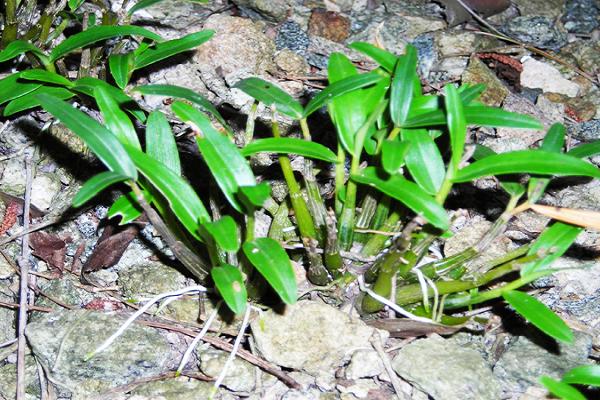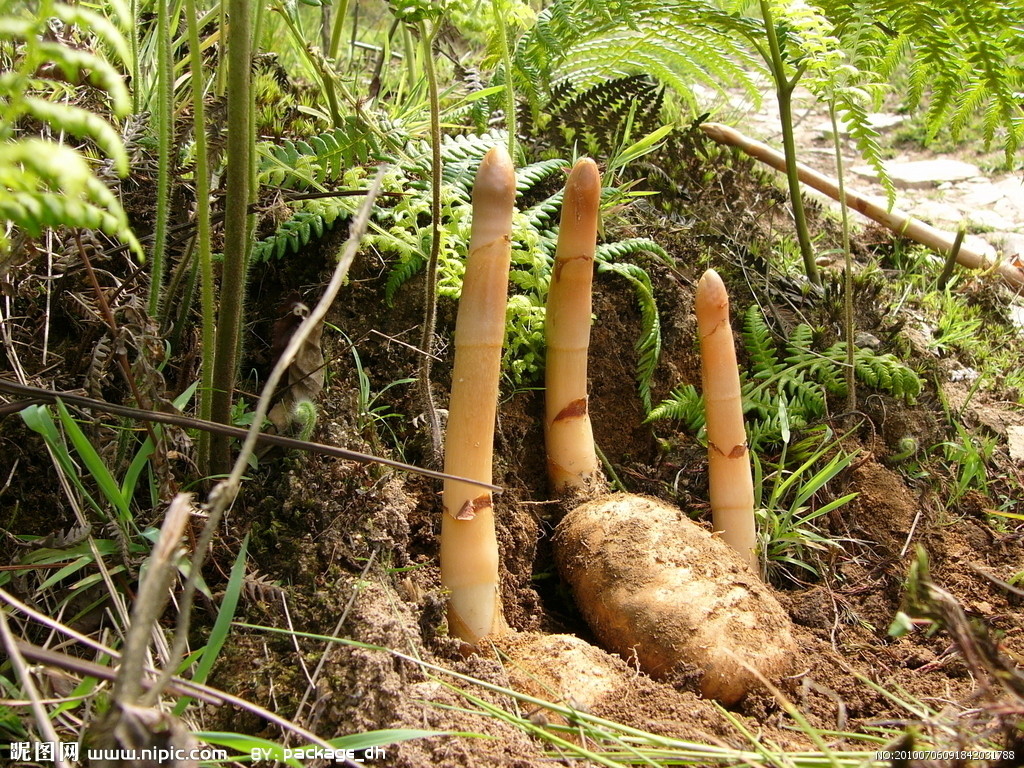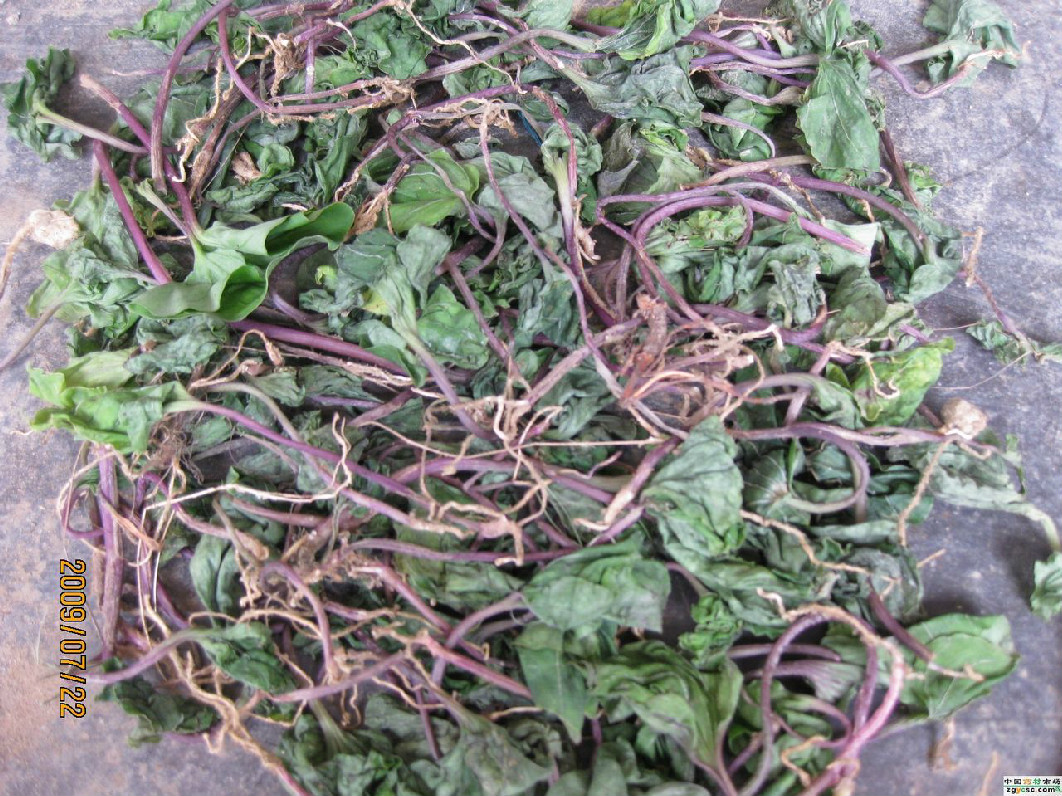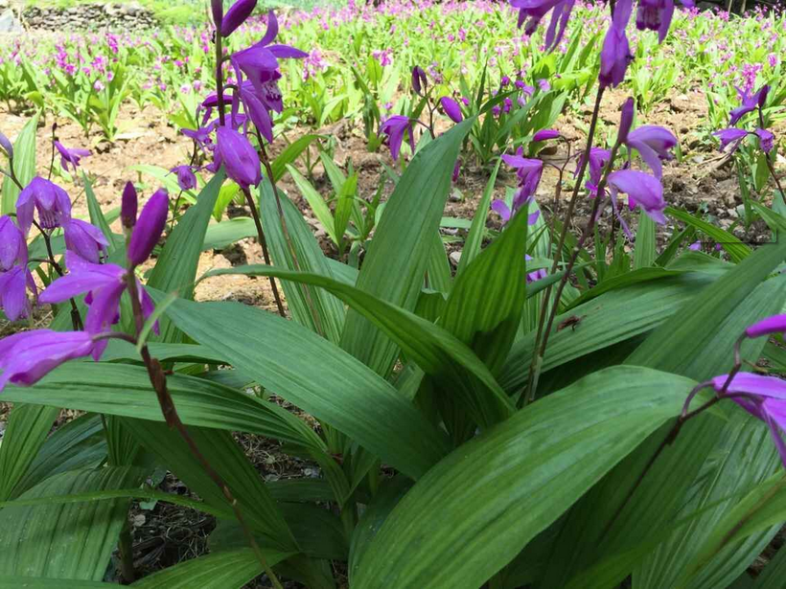- Liliaceae
- Lamiaceae
- Euphorbiaceae
- Leguminosae
- Zingiberaceae
- Chloranthaceae
- Campanulaceae
- Asteraceae
- Acanthaceae
- Orchidaceae
- Polygonaceae
- Ranunculaceae
- Vitaceae
- Rubiaceae
- Solanaceae
- Thymelaeaceae
- Saururaceae
- Moraceae
- Polypodiaceae
- Myrtaceae
- Araceae
- Adiantaceae
- Schisandraceae
- Amaranthaceae
- Berberidaceae
- Araliaceae
- Taxaceae
- Cucurbitaceae
- Apiaceae
- Guttiferae
- Scrophulariaceae
- Papilionaceae
- Caprifoliaceae
- Elaeagnaceae
- Apocynaceae
- Brassicaceae
- Papaveraceae
- Gentianaceae
- Paeoniaceae
- Lauraceae
- Punicaceae
- Nyssaceae
- Ephedraceae
- Gnetaceae
- Polygalaceae
- Violaceae
- Ginkgoaceae
- Cupressaceae
- Dipsacaceae
- Eucommiaceae
- Juglandaceae
- Dryopteridaceae
- Rosaceae
- Huperziaceae
- Caryophyllaceae
- Rhamnaceae

Dendrobium nobile Lindl.
- Introduction
- Download
Blast
The stem of Dendrobium nobile Lindl. (Orchidaceae) has been used in Traditional Chinese Medicine (TCM) and as an herbal medicine in many Asian countries for hundreds of years with pecial pharmacological effects on gastritis, diabetes, cancer and ageing.
Year: 2017
Institution: Institute of Medicinal Plant Development, Chinese Academy of Medical Sciences & Peking Union Medical College, Beijing, 100193, China.
Material: -
Download: http://www.herbal-genome.cn/index.php?m=content&c=index&a=show&catid=100&id=134

Gastrodia elata
- Introduction
- Download
Blast
Gastrodia elata , a traditional herbal agent that has been used as an anti-convulsant in oriental countries for centuries. In addition, GE is also used as an analgesic and a sedative against vertigo, general paralysis, and tetanus. Vanilly alcohol and gastrodin from Gastrodia elata are known to have anticonvulsive action.
Year:2016
Institution:Crop Improvement Division, Kaohsiung District Agricultural Improvement Station, Pingtung 900, Taiwan.
Material: Jilin, China
Data link:http://www.herbal-genome.cn/index.php?m=content&c=index&a=show&catid=100&id=44

Dendrobium officinale
- Introduction
- Download
Blast
The stem of the plant Dendrobium officinale Kimura et Migo (Orchidaceae) is used in traditional Chinese medicine and has been used as an herbal medicine in many Asian countries for hundreds of years. The major medicinal components include alkaloids, polysaccharides, amino acids, and several trace mineral elements
1
Year:2013
Institution:Institute of Medicinal Plant Development, Chinese Academy of Medical Sciences & Peking Union Medical College
Material: Zhejiang, China
2
Year:2016
Institution:Key Laboratory of South China Agricultural Plant Molecular Analysis and Gene Improvement, South China Botanical Garden, Chinese Academy of Sciences, Guangzhou
Material: Guangzhou, China
3
Year:2016
Institution:College of Life and Environmental Sciences, Hangzhou Normal University, Hangzhou, PR China
Material: -
4
Year:2017
Institution:College of Life and Environmental Science, Hangzhou Normal University, Hangzhou, 310036, China.
Material: Hangzhou, China
4
Year:2017
Institution:Co-Innovation Center for Sustainable Forestry in Southern China, Nanjing Forestry University, 159 Longpan Road, Nanjing, Jiangsu
210037, China
Material: -
Data link:http://www.herbal-genome.cn/index.php?m=content&c=index&a=show&catid=100&id=43

Nervilia fordii
- Introduction
- Download
Blast
Nervilia fordii, the leaves or whole plant of N. fordii are called “Qing Tian Kui” in China, and used for the treatment of pulmonary diseases, including asthma, acute bronchitis and chronic asthmatic bronchitis, for a long time because of the action to clear away pathogenic heat and toxic substances from the body, arrest cough, remove blood stasis and relieve pain in the traditional Chinese medical system.
Year:2015
Institution:Research Center of Chinese Medicinal Resource Science and Engineering, Guangzhou University of Chinese Medicine; Key Laboratory of Chinese Medicinal Resource from Lingnan, Ministry of Education, Guangzhou
Material: Guangxi, China
Data link: http://www.herbal-genome.cn/index.php?m=content&c=index&a=show&catid=100&id=42

Bletilla striata (Thunb.) Reichb.f.
- Introduction
- Download
Blast
Bletilla striata (Thunb.) Reichb.f. is a well-known traditional Chinese herb, which was first described in Shennong BenCao Jing (Shennong’s Materia Medica) 2000 years ago. The medicinal part of Bletilla is remedy for many diseases. It reduces the edema of the lung, as well as enhances the hemostasis in the lungs, stomach and nose. When applied topically, Bletilla is also used to treat skin cracks, abscesses, burns and freckles when combined with other traditional Chinese medicines. Bletilla is used to instigate euphoria,purification of the blood, and the strengthening and consolidation of lungs as described in traditional medicine literatures. Bletilla is also used to treat swollen tissues induced by malignant tumors, e.g.breast cancer.
Year:2016
Institution:South China Botanical Garden, Chinese Academy of Sciences
Yunnan Agricultural University
Material: Wuhan, China
Data link: http://www.herbal-genome.cn/index.php?m=content&c=index&a=show&catid=100&id=41